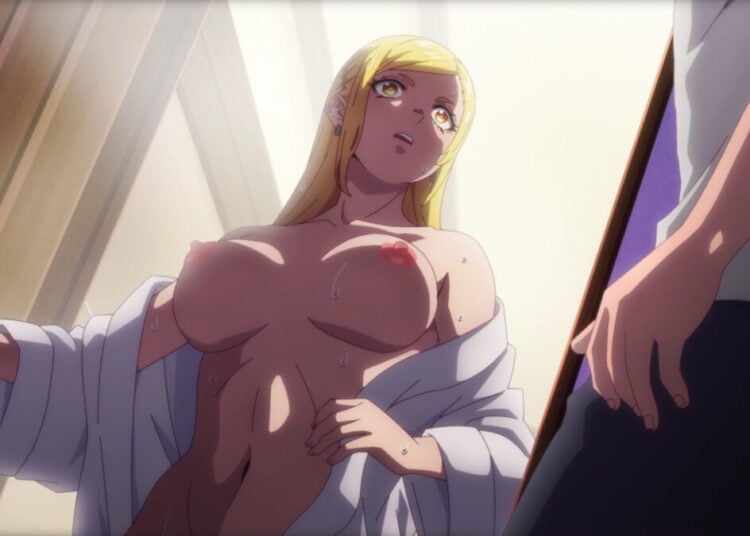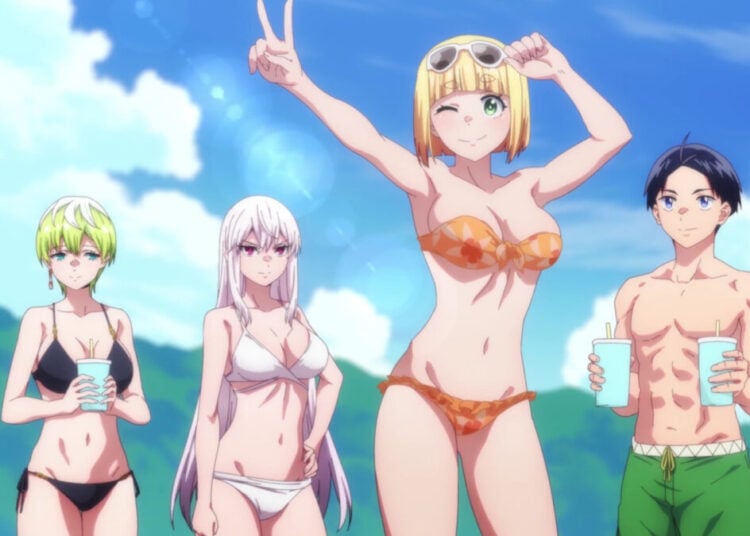Ever wondered how the English dubbed version of the anime you love comes into being? Had questions about the casting or translation process? Wondered why certain lines are changed or removed completely? If so, then you’re in luck! Today, to give insight into the anime dubbing process, a voice actor has agreed to answer a few questions we had for them. However, per request, their identity has been left anonymous.
Walker: Hello there. It’s nice to have you here with me today.
Anonymous: Thank you! <3 It’s great to be here.
Walker: Now, I understand your request, but to start off is it possible for you to give us a few titles you’ve worked on?
Anonymous: Yes! I’ve been in Goblin Slayer, and My Hero Academia!
Walker: And how long have you been working as a voice actor?
Anonymous: Several years now. Let’s not mention an exact number.
Walker: That’s perfectly fine. I wanted to talk to you today about everything that is involved in the dubbing process and in voice acting. So I have a few topics. Shall we jump right into it?
Anonymous: YES! Ask away! 🙂
https://www.youtube.com/watch?v=ivV_Gz0wQJM
How does it all begin? What happens first when you get the original Japanese version of a new project?
Anonymous: It starts with the script. We’ll take the Japanese (the “Js” as we call it) and someone in the department who speaks fluent Japanese goes through it and does a translation for us. Then we’ll take that version and our writers will edit it to better match the lip flaps from the anime. This is where things can kind of go wrong or get lost. Words get left behind or don’t fit so they get replaced instead.
Walker: What about in cases where entire lines of dialogue are completely different from the Japanese?
Anonymous: There are many reasons for that. Sometimes the original doesn’t comply with the industry standard for sensitive topics, or we have to think about what will affect the show’s rating. Then there’s the target audience that we have to consider. Any of these issues happen a lot for us.
Walker: How is the character’s English voice chosen?
Anonymous: That typically falls into our auditioning process. The directors will take some lines from the first episode or the script (usually we wait to have the first episode in our hands). Sometimes we even use lines from the manga if that’s all we have. From there we have someone read for it and [we] listen to their own interpretation. Then the director will go through all the auditions and pinpoint what they think is best.
What happens when names of characters or story relics are pronounced incorrectly?
Anonymous: So that does happen occasionally where the translation might be off or a name is pronounced wrong and we have to redub it. It’s not common, but when it happens we just go back and fix it. But if the pronunciation is unknown then it’s usually up to the director to make a call on what to go with. But there are still several projects where the director will be a stickler for proper pronunciation.
Walker: I actually get that. Every time I read French or German loan-words written in katakana I usually haven’t a clue what’s actually being said.
Anonymous: (laughs) Yeah, it’s stuff like that. There are times when I have no idea how certain words are said even after I see the English script. Really long words, or characters who have five different names. It’s never fun!
What about when it comes to characters who are vulgar? Why are those lines sometimes changed?
Anonymous: As mentioned, we have to worry about the show’s rating, but if a character uses very specific Japanese curse words then sometimes we won’t understand it at all after it’s translated. So usually we edit them.
And ad-libbing?
Anonymous: So, HAHA! Actually, ad-libbing is a very rare occurrence in dubbing for the most part.
Walker: Really?!
Anonymous: Yeah! Ad-libbing does not happen very often. We’ll give a different take on how a line might sound, or try replacing a word or two, but that’s about the extent of our ad-libbing capabilities. The script is the script and that’s how we are supposed to read it.
We have a thing called “Bombs” that we do that are there to make other actors and the directors laugh if we have some free time during a session. We’ll replace the real line with something else fitting the context of the scene but make it usually vulgar or silly. They are just meant to get a reaction. They are never ever meant to be published.
Walker: Well…most of them don’t get released.
Anonymous: (laughs) Yes, most of them don’t. There have been a few that accidentally slipped by and are later corrected, but thankfully none of them have been mine. <3
You’ve seen it all happen multiple times over the years. What would you say is the most critical mistake that keeps a dub from reaching its full potential?
Anonymous: When they don’t do auditions, and just go straight to casting!
Walker: Wait- huh?! They just cast without auditioning?
Anonymous: Yeah. It sadly happens a lot, now. I think there are a few titles that could have been a lot better if auditions had been held.
https://www.youtube.com/watch?v=P1Js-BdEBZ0
So if auditions aren’t being held as often, then how does one get their start if they want to be a voice actor?
Anonymous: Not through anime! <3 When it comes to anime something anyone should know is that you don’t do it to get famous. You do it because you love it. Frankly, it doesn’t pay big bucks and it’s never going to. I’m sorry you’re not going to get anime famous, and even if you do it’s really not worth it. It’s not like Japan were voice actors are celebrities. You might as well count yourself with the trashman (laughs).
Walker: That’s kind of hard to believe. What about people like Laura Bailey, Matt Mercer, Johnny Yong Bosch, or Tara Strong? Surely there are people who have made their whole career on voice acting!
Anon: That’s true, but one crucial detail is that all of those people are more than just anime voice actors. They’ve done cartoons and video games. Johnny Bosch was the first black power ranger! It’s not just voice acting that’s made those people their careers. A lot of the times it’s just who you are and all the skills you have. You can make a whole career on voice acting, but not just anime voice acting.
Walker: So then where do you begin?
Anonymous: Commercials! They pay the big bucks for real! You can make 2 or 3 months’ rent from one commercial voice over! However, it’s very competitive but a very good market to be in. Game voice acting pays a lot better, too. It’s a lot more vigorous.
Different jobs will require different skill sets and mediums. Anime needs more grunts or chest oriented sounds. Then you have the cute stuff and sound effects, and if you can’t do it then well….
“What would you say is the best way for someone to support the anime industry if they don’t like dubs?”
Anonymous: I’d recommend doing it through streaming services. There’s HIDIVE! There’s Funimation and Crunchyroll. There are all sorts of them and you can still watch everything in Japanese. Also, buying the official DVDs!
Walker: Any final words you’d like to say to our readers?
Anonymous: It was fun to be here! My name is *loud truck driving by, horn honking* Don’t look me up. <3














